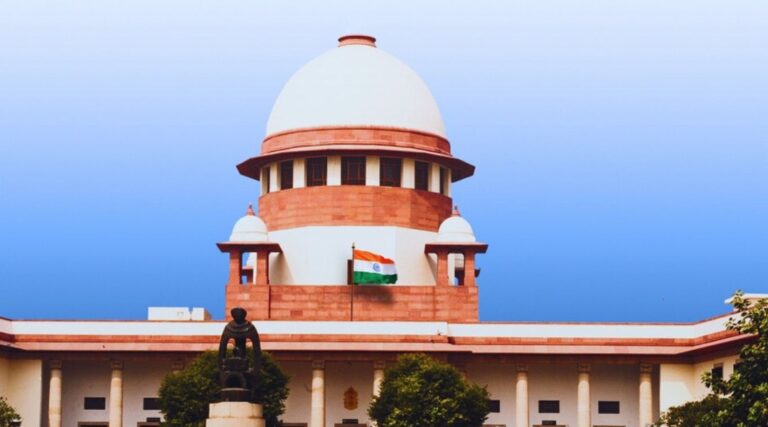The Supreme Court, in its judgment dated 28 August 2025, delivered a significant ruling in the field of tax prosecutions by quashing criminal proceedings initiated by the Income Tax Department against an assessee under Section 276C(1) of the Income Tax Act, 1961. The Court strongly criticized the Department for “grossly abusing its position” by continuing prosecution despite clear CBDT guidelines and a binding order of the Settlement Commission. Not only did the Court set aside the Madras High Court’s refusal to quash the case, but it also imposed ₹2,00,000 as costs on the Department, signaling judicial intolerance towards frivolous and premature prosecutions. This judgment is seen as a landmark in reinforcing taxpayer protection and ensuring that prosecution is invoked only in cases of confirmed and deliberate tax evasion.
Case Title
Vijay Krishnaswami vs Deputy Director of Income Tax (Investigation), Chennai
(Supreme Court of India, Judgment dated 28 August 2025)
Facts
- In April 2016, Income Tax Department searched the assessee’s premises and seized ₹4.93 crore unaccounted cash.
- A complaint was filed under Section 276C(1), Income Tax Act, 1961 alleging willful tax evasion.
- The assessee approached the Madras High Court in 2018 to quash the prosecution, but the petition was dismissed.
- Parallelly, he filed before the Settlement Commission in Dec 2018, offering disclosure of additional income.
- On 26 Nov 2019, the Settlement Commission granted immunity from penalty, but withheld immunity from prosecution.
- Despite this, the Department continued with the prosecution.
Issue
Whether the Income Tax Department could continue prosecution under Section 276C(1) despite:
- Settlement Commission granting immunity from penalty, and
- CBDT circulars requiring confirmation of penalty by ITAT before prosecution.
Ruling
- The Supreme Court quashed the prosecution and imposed ₹2,00,000 costs on the Department for gross abuse of process of law.
- Settlement Commission orders are conclusive and binding under Section 245-I; once immunity is granted from penalty, prosecution cannot be sustained.
- CBDT Circulars (2008 & 2019) clearly state that prosecution should not be launched unless penalty is confirmed by ITAT. Department’s action violated its own binding guidelines.
- The Court criticized the Department for “blatant disregard” of law and fairness.
Impact
- Binding Nature of CBDT Circulars – Treated as mandatory, not advisory.
- Check on Premature Prosecution – Prosecution under Section 276C(1) cannot be launched/continued unless penalty is confirmed by ITAT.
- Respect for Settlement Commission – Orders granting immunity have finality; parallel prosecution is not permissible.
- Taxpayer Protection – Prevents harassment and misuse of prosecution as a pressure tactic.
- Costs as Deterrence – Imposition of ₹2 lakh costs signals stricter judicial stance against frivolous tax prosecutions.
✅ Broader Takeaway: The ruling narrows the scope of tax prosecutions, ensuring they are pursued only in genuine, deliberate, and judicially confirmed cases of evasion, strengthening taxpayer rights and departmental accountability.
🔎 Key Implications of the Ruling
1. Reinforcement of CBDT Guidelines as Binding
- CBDT circulars (like Circular 24/2019) are not merely advisory — the Court treated them as binding on the Department.
- Any prosecution launched in violation of these circulars can now be challenged as an abuse of process of law.
2. Prosecution Linked to Penalty Confirmation
- The ruling strengthens the safeguard that prosecution under Section 276C(1) cannot proceed unless penalty is first confirmed by the ITAT.
- This protects taxpayers from premature and parallel criminal proceedings before their civil tax disputes are conclusively decided.
3. Curtailing Harassment of Taxpayers
- The SC criticized the Department for “grossly abusing its position.”
- This sets a precedent discouraging the practice of initiating prosecution merely as a pressure tactic during assessments or settlement negotiations.
4. Settlement Commission Orders Given More Finality
- The SC emphasized that orders of the Settlement Commission are conclusive and binding under Section 245-I of the I-T Act.
- Once immunity is granted (even if partial), the Department cannot continue prosecution selectively.
5. Increased Judicial Scrutiny of Prosecution Sanction
- Courts will now scrutinize whether the Department complied with internal circulars and procedural safeguards before granting sanction for prosecution.
- This may lead to more quashings of prosecutions if departmental authorities bypass mandatory checks.
6. Deterrence Against Frivolous Prosecution
- By imposing ₹2 lakh costs personally against the Department, the SC sent a signal:
- Frivolous or non-compliant prosecutions won’t just be quashed,
- They may also invite penalty costs to deter misuse of criminal law powers.
Cbdt circular cited:
In this case, the Supreme Court referred to CBDT prosecution guidelines, specifically:
- CBDT Circular No. 24/2019 dated 09.09.2019
- It clarified that prosecution under Section 276C(1) (willful attempt to evade tax) should not be launched unless the penalty levied has been confirmed by the Income Tax Appellate Tribunal (ITAT).
- This safeguard was introduced to prevent harassment of taxpayers and to ensure prosecution is initiated only in cases where evasion is judicially confirmed.
- CBDT Instruction No. 5051 dated 07.02.1991 (reiterated in Circular No. 25/2008 dated 31.10.2008)
- Earlier instruction which also required prosecution sanctioning authorities to wait for penalty confirmation by ITAT before proceeding with criminal prosecution under Section 276C.
- The 2008 circular reaffirmed this position.
Summary Table
| Aspect | Details |
|---|---|
| Assessee | Vijay Krishnaswami / Krishnaswami Vijayakumar |
| Issue | Prosecution for alleged willful tax evasion (Section 276C(1)) |
| High Court Ruling | Madras HC refused to quash prosecution |
| Settlement Commission | Grated immunity from penalty (2019) |
| Legal Violation | Launched prosecution despite circulars requiring ITAT confirmation |
| Supreme Court Ruling (Aug 28, 2025) | Prosecution quashed; ₹2 lakh cost imposed on IT Department |
| Bench | Justices J.K. Maheshwari & Vijay Bishnoi |
